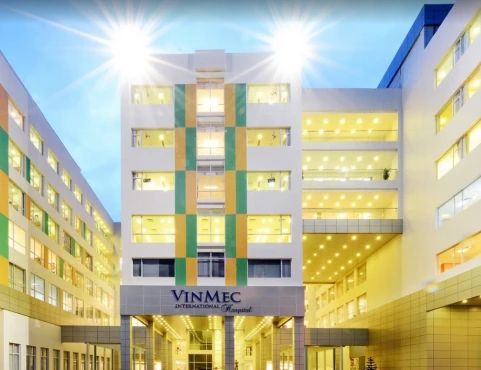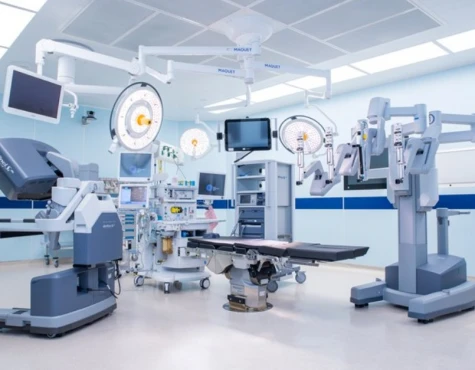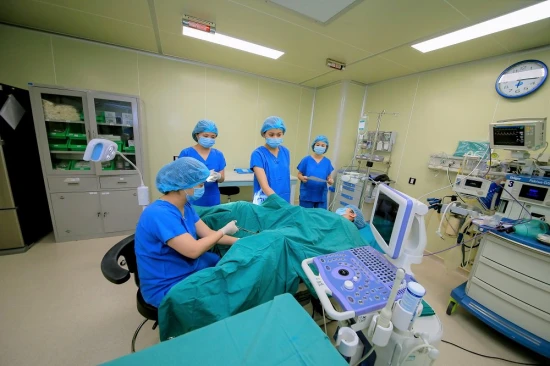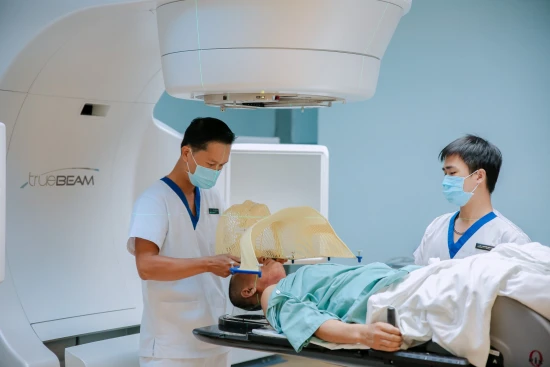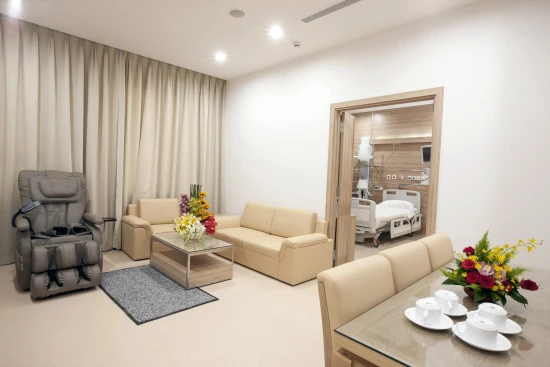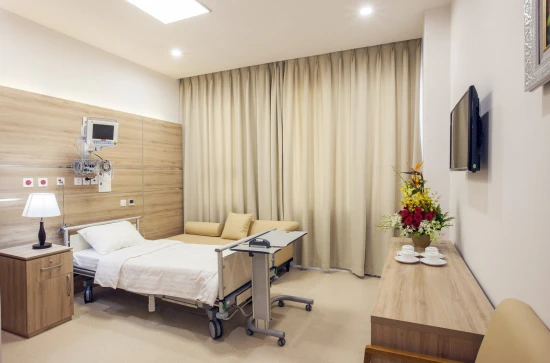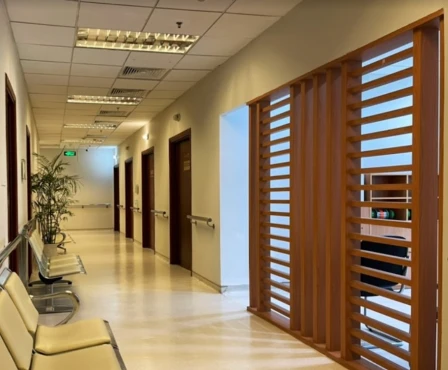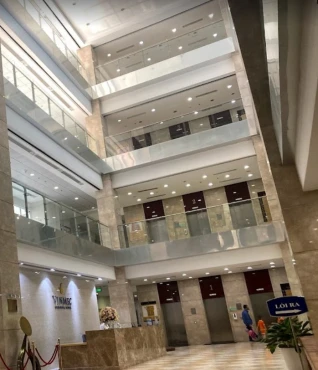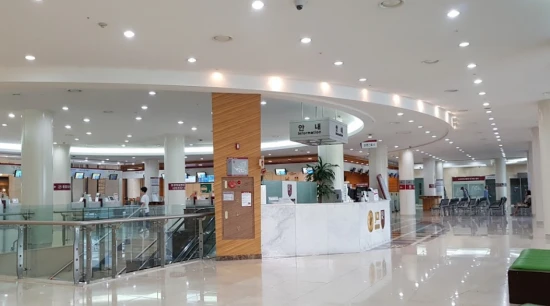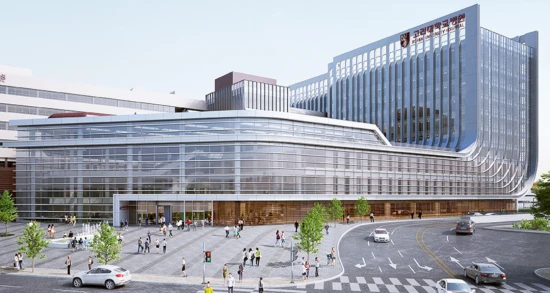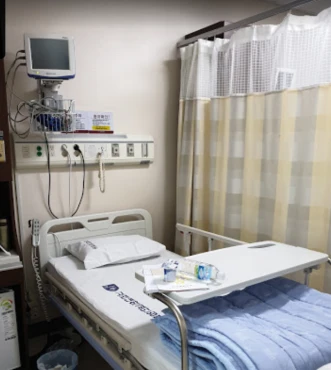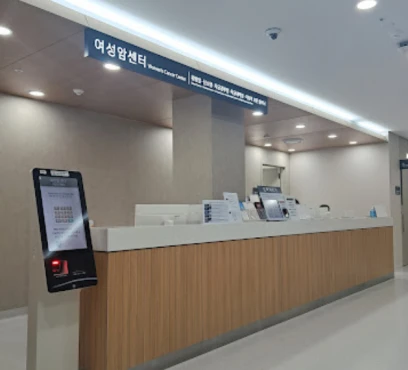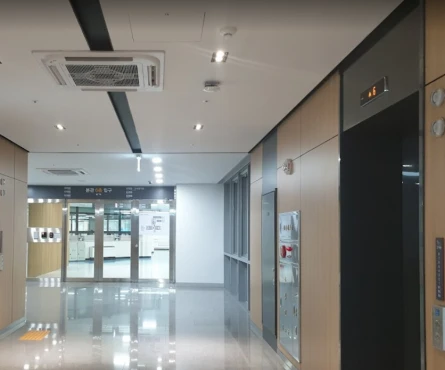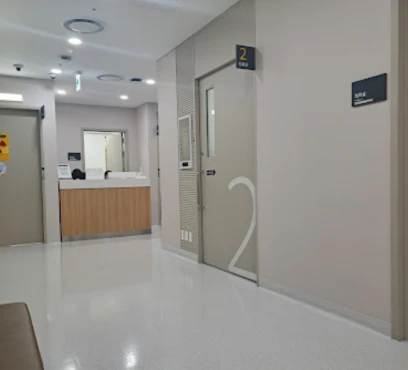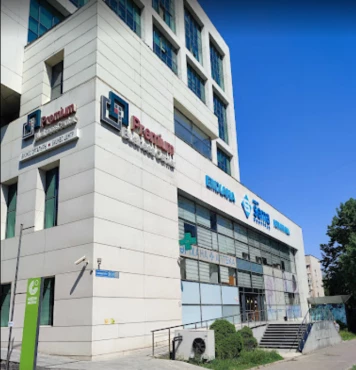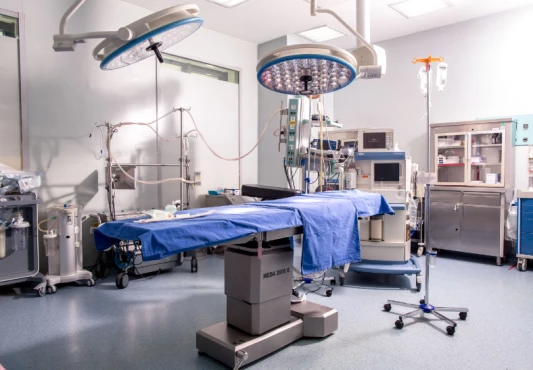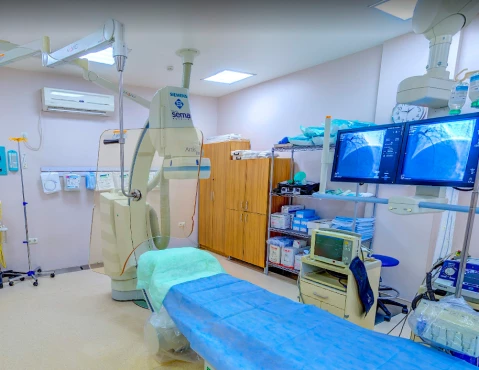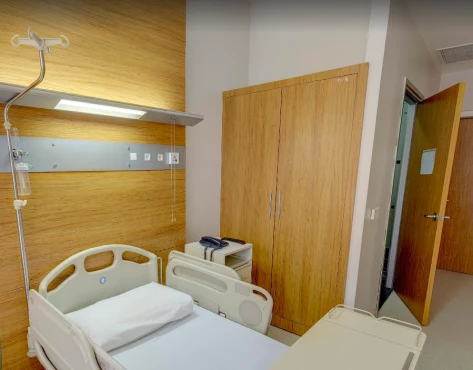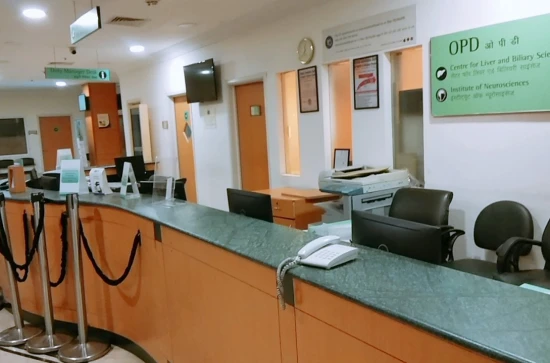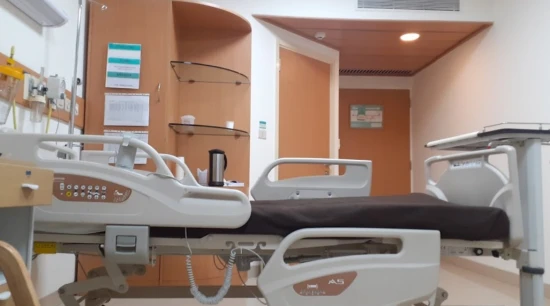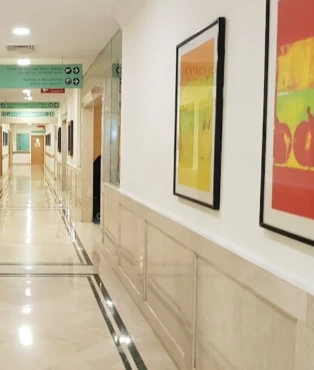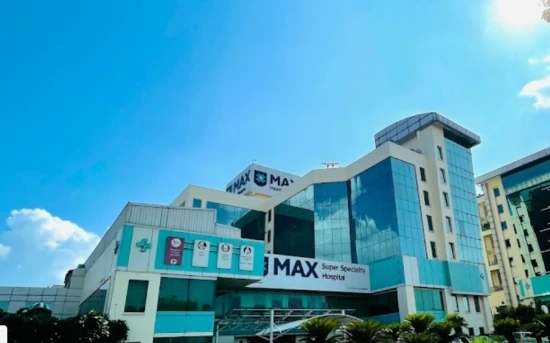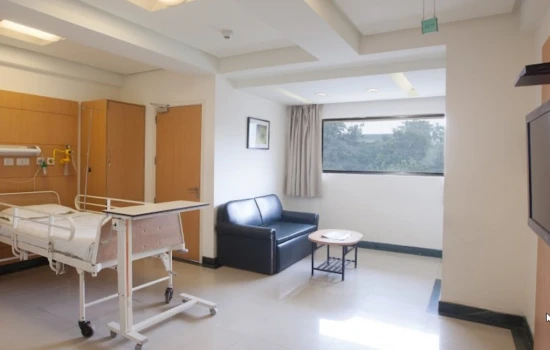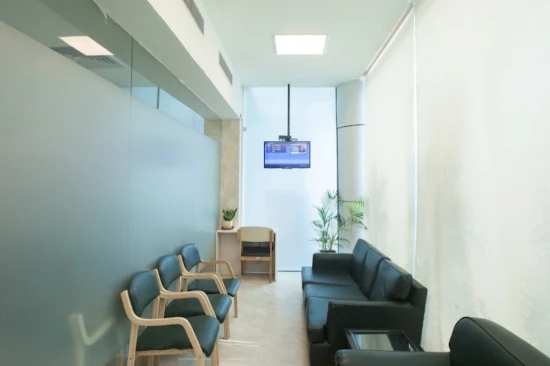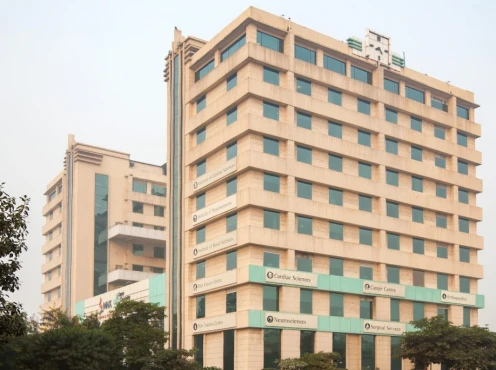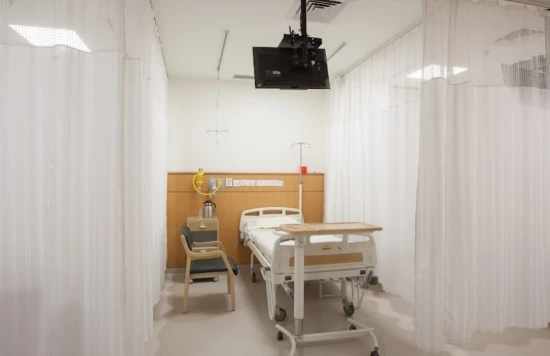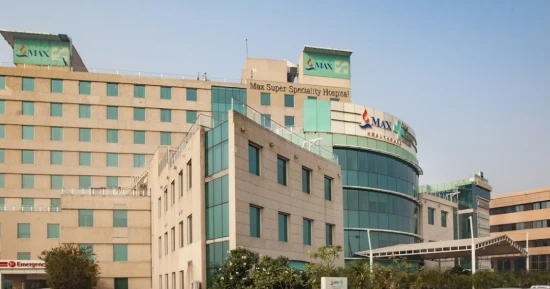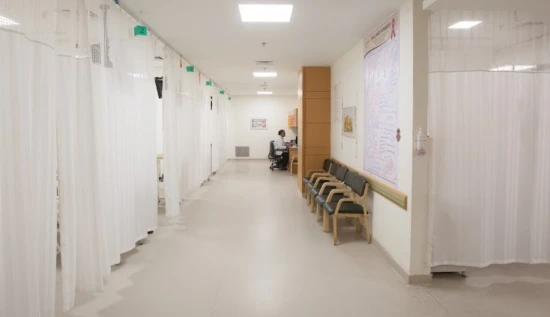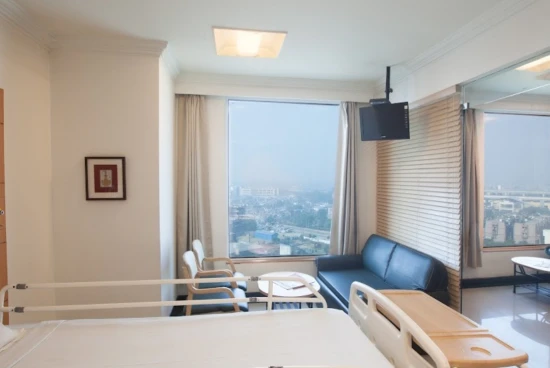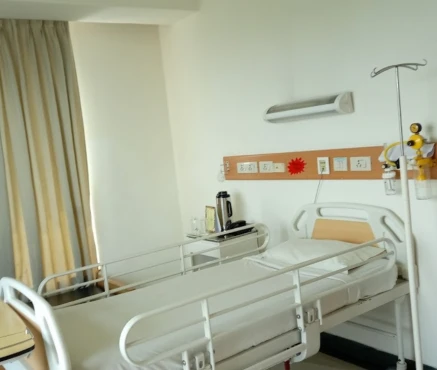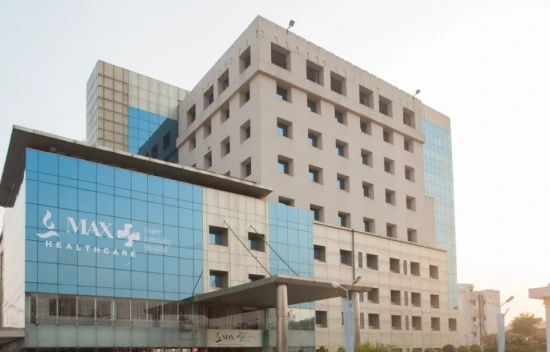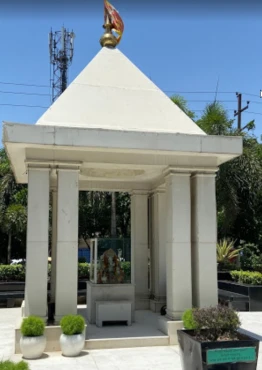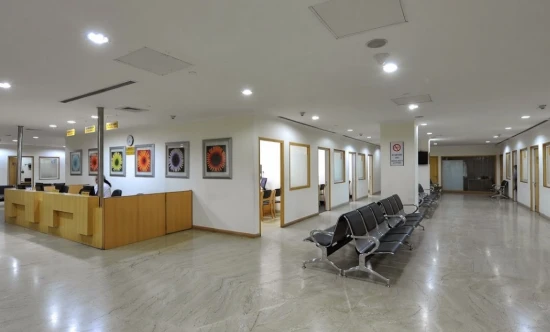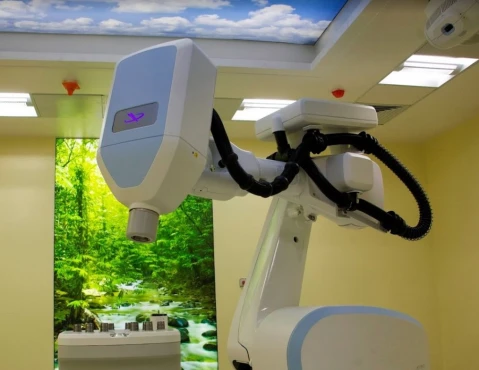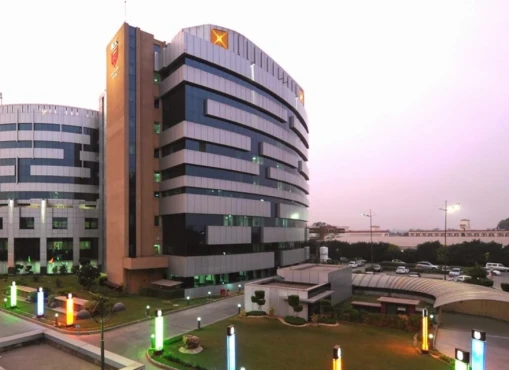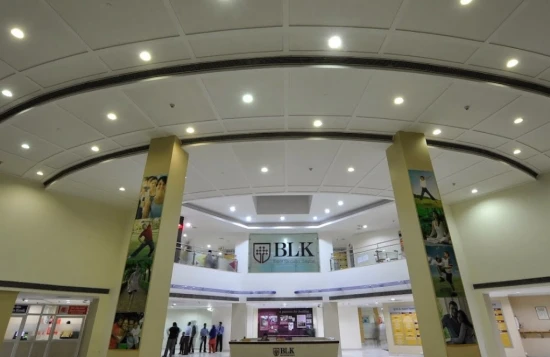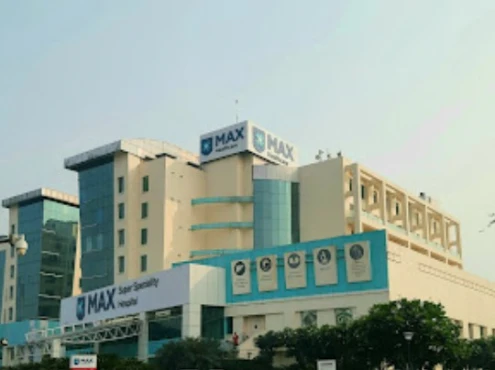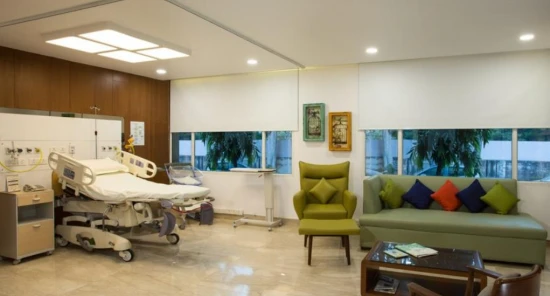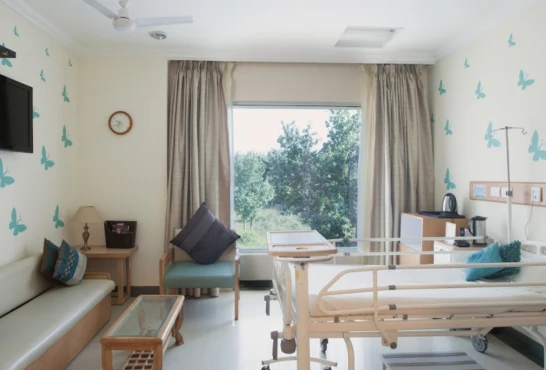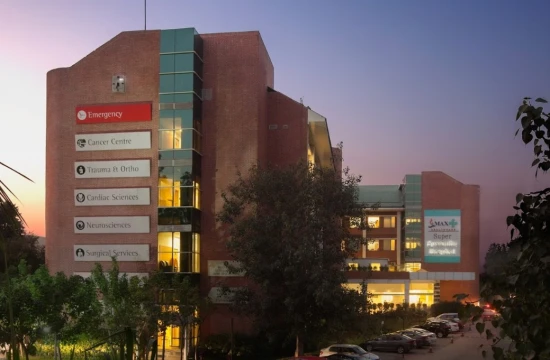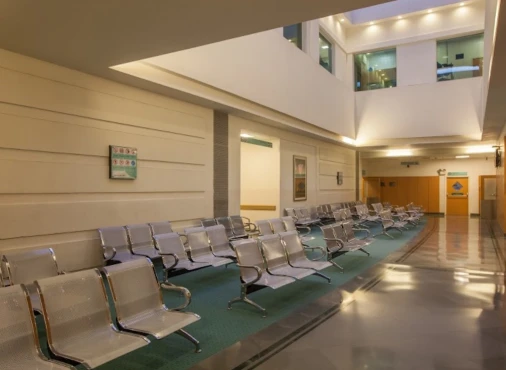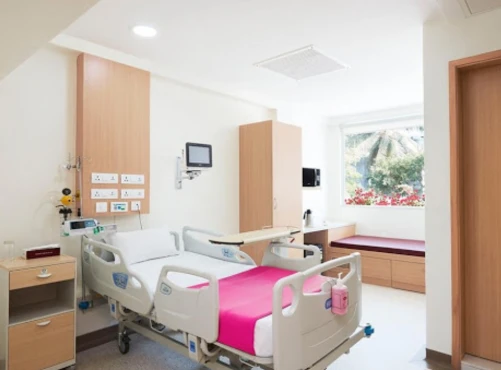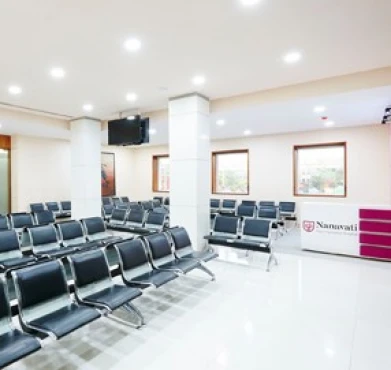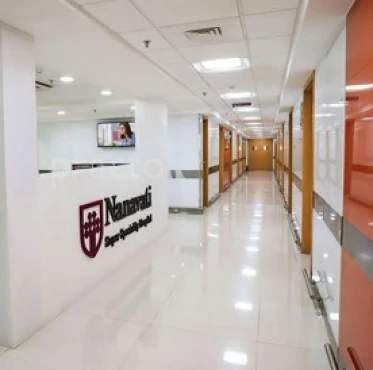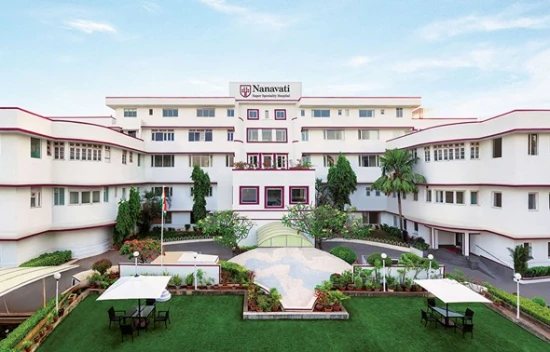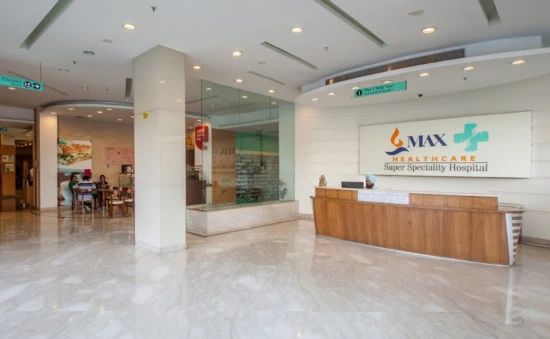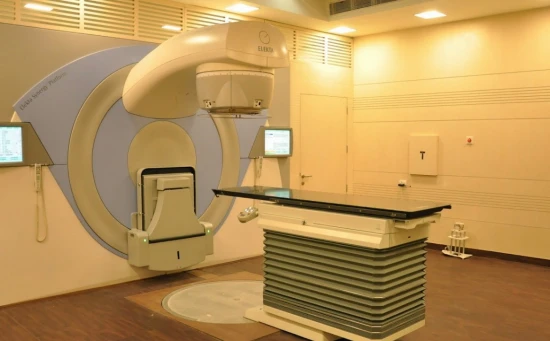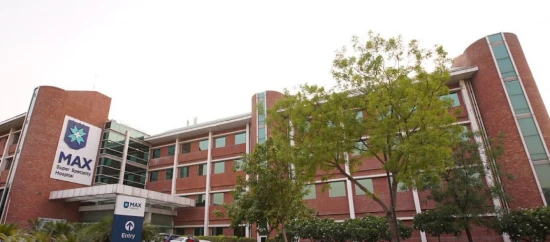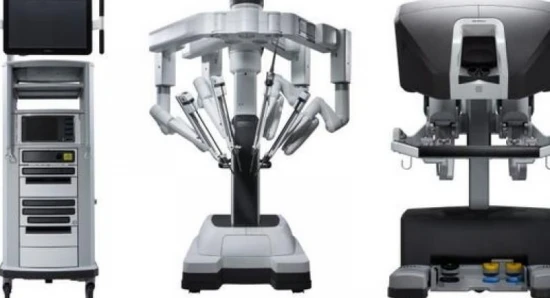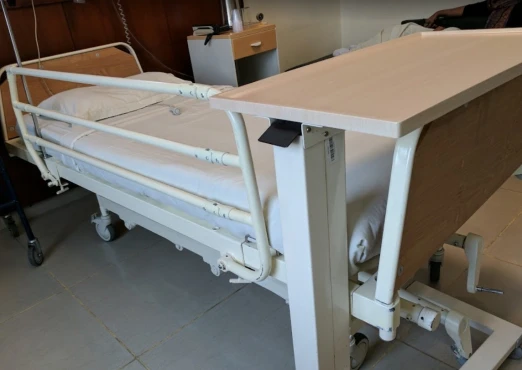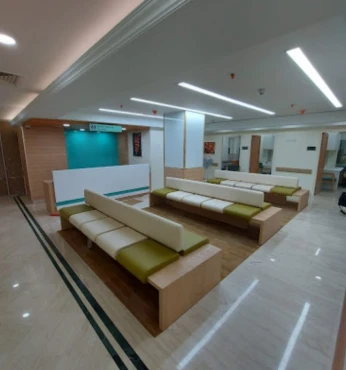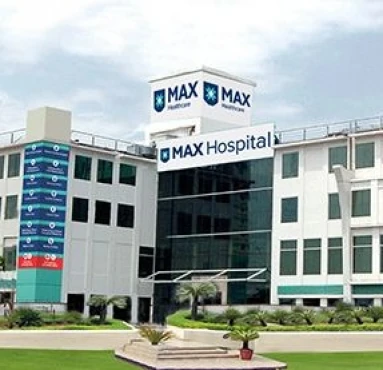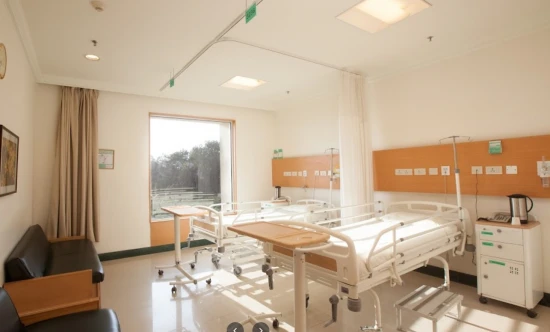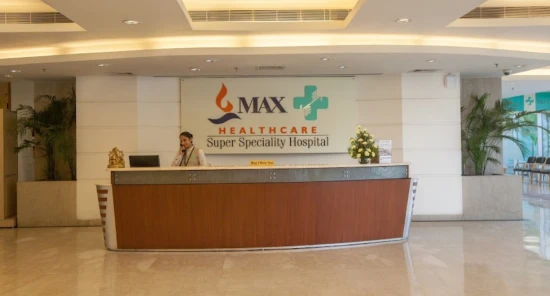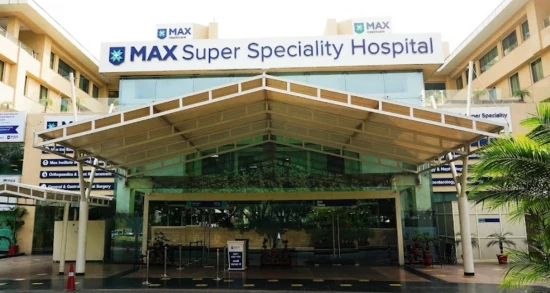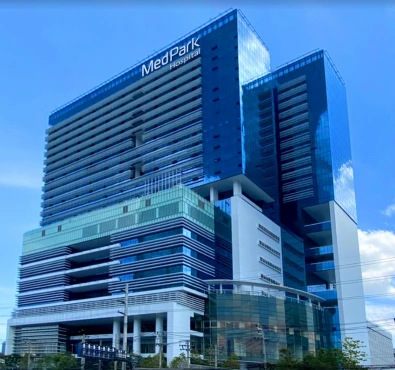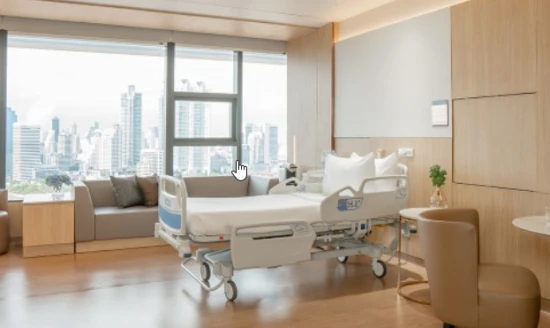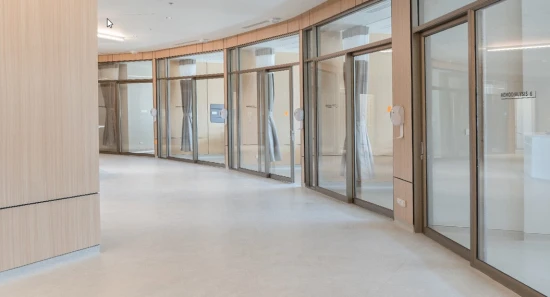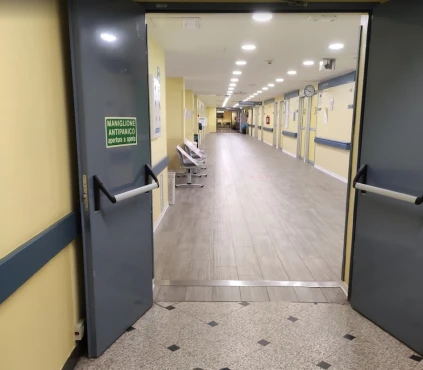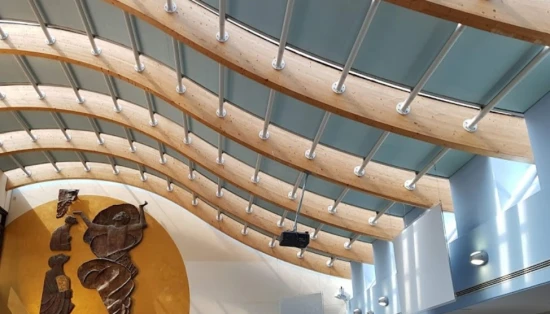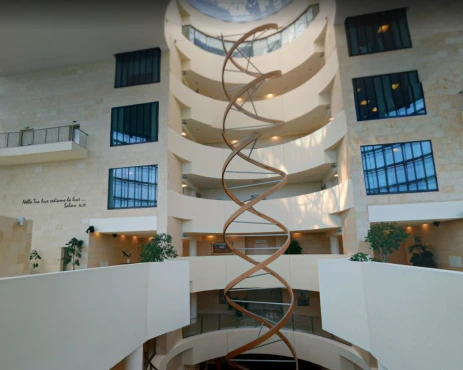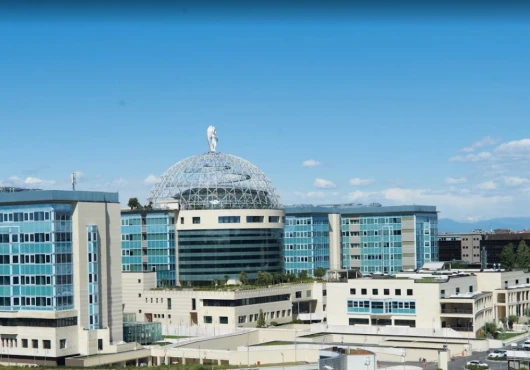Mitral valve stenosis treatment in 577 Cardiac surgery clinics worldwide
577 clinics specializing in Cardiac surgery providing treatment of Mitral valve stenosis Mitral valve stenosis is a heart condition where the mitral valve becomes narrowed, impeding blood flow from the left atrium to the left ventricle. This can lead to symptoms such as shortness of breath, fatigue, and chest pain. disease worldwide.
Sorted by:
Relevance
Rating
Relevance
Prices for popular procedures:
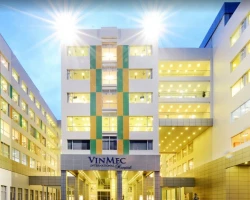
Ho Chi Minh City, Vietnam
Specializations: Cardiac surgery, Vascular surgery, Thoracic surgery, Neurosurgery, Spine surgery, Orthopedic surgery, Oncology
Languages: English
Inheriting the prestige and outstanding quality of Vinmec Healthcare system, Vinmec Central Park International Hospital is the third hospital in the system to be officially
read more
Prices for popular procedures:
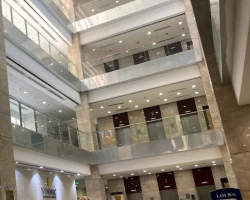
Hanoi, Vietnam
Specializations: Cardiac surgery, Vascular surgery, Thoracic surgery, Neurosurgery, Spine surgery, Orthopedic surgery, Oncology
Languages: English, French, Japanese, Korean
Vinmec Times City International Hospital is the first hospital in the Vinmec Health System chain to be put into operation. Located in the most modern
read more
Prices for popular procedures:

Seoul, South Korea
Specializations: Cardiac surgery, Vascular surgery, Thoracic surgery, Neurosurgery, Spine surgery, Orthopedic surgery, Oncology, Dentistry
The hospital is fully devoted to elevating its medical service quality by introducing state-of-the-art equipment and systems such as Robot surgery, Linear Accelerator, 3.0T MRI,
read more
Prices for popular procedures:
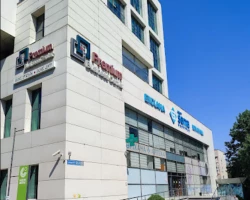
Almaty, Kazakhstan
Specializations: Cardiac surgery, Vascular surgery, Thoracic surgery, Neurosurgery, Spine surgery, Orthopedic surgery, Oncology, Dentistry
Languages: English, Russian
At the Almaty SEMA Hospital Clinic, you can get a full range of medical services provided by our leading specialists. Whether you need a small
read more
Prices for popular procedures:
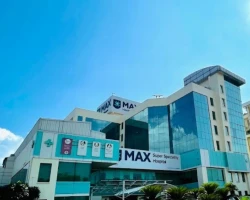
New Delhi, India
Specializations: Cardiac surgery, Vascular surgery, Thoracic surgery, Neurosurgery, Spine surgery, Orthopedic surgery, Oncology, Dentistry
Max Hospital has become one of the best names in the field of medical hospitality service in India. The Max Super Specialty Hospital Saket, New
read more
Prices for popular procedures:
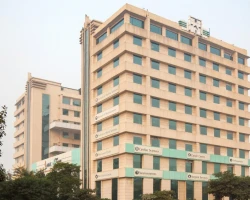
Delhi, India
Specializations: Cardiac surgery, Vascular surgery, Thoracic surgery, Neurosurgery, Spine surgery, Orthopedic surgery, Oncology, Dentistry
Languages: English
Max Super Specialty Hospital Patparganj, Delhi has been one of the top medical care facilities for not only the people of Delhi but also for
read more
Prices for popular procedures:
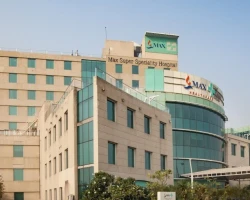
Delhi, India
Specializations: Cardiac surgery, Vascular surgery, Thoracic surgery, Neurosurgery, Spine surgery, Orthopedic surgery, Oncology, Dentistry
Languages: English
The Max super specialty hospital in the Shalimar Bagh region in Delhi is one of the most reputed super-specialty hospitals in the country offering specialized
read more
Prices for popular procedures:
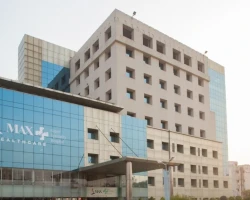
Delhi, India
Specializations: Cardiac surgery, Vascular surgery, Thoracic surgery, Neurosurgery, Spine surgery, Orthopedic surgery, Oncology, Dentistry
Max Super Speciality Hospital,Vaishali offers top-notch treatment across various specialties such as aesthetic and reconstructive surgery, cardiac sciences, orthopedics and joint replacement, nephrology, oncology, and
read more
Prices for popular procedures:
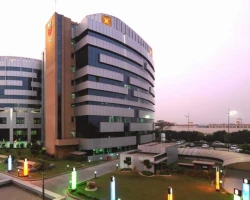
New Delhi, India
Specializations: Cardiac surgery, Vascular surgery, Thoracic surgery, Neurosurgery, Spine surgery, Orthopedic surgery, Oncology, Dentistry
BLK-Max Super Speciality Hospital has a unique combination of the best in class technology, put to use by the best names in the professional circles
read more
Prices for popular procedures:
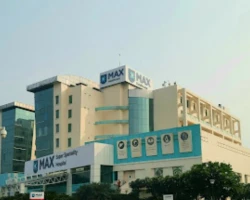
New Delhi, India
Specializations: Cardiac surgery, Vascular surgery, Thoracic surgery, Neurosurgery, Spine surgery, Orthopedic surgery, Oncology, Dentistry
The Max smart super specialty hospital in Saket is located in south Delhi and is a reputed multi- specialty hospital that has set its quality
read more
Prices for popular procedures:
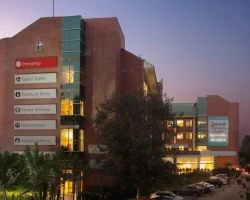
Mohali, India
Specializations: Cardiac surgery, Vascular surgery, Thoracic surgery, Neurosurgery, Spine surgery, Orthopedic surgery, Oncology, Dentistry
Max Super Speciality Hospital, Mohali is a unit of Hometrail Estate Pvt. Ltd., offering services across medical disciplines of Neurosciences, Cardiac Sciences, Cancer Care, Orthopaedics,
read more
Prices for popular procedures:
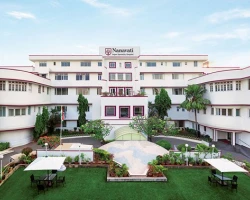
Mumbai, India
Specializations: Cardiac surgery, Vascular surgery, Thoracic surgery, Neurosurgery, Spine surgery, Orthopedic surgery, Oncology, Dentistry
The iconic healthcare institution of Mumbai, Dr. Balabhai Nanavati Hospital, blessed by Mahatma Gandhi and inaugurated in 1950 by India’s first Prime Minister Jawaharlal Nehru,
read more
Prices for popular procedures:
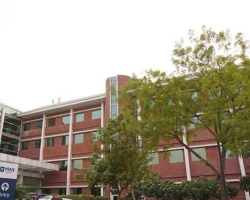
Bhatinda, India
Specializations: Cardiac surgery, Vascular surgery, Thoracic surgery, Neurosurgery, Spine surgery, Orthopedic surgery, Oncology, Dentistry
Max Super Speciality Hospital, Bathinda is known for its expertise in Neurosciences, Orthopaedics, Cardiac Sciences, Cancer Care, Obstetrics and Gynaecology, Minimal Access, Metabolic, and
read more
Prices for popular procedures:
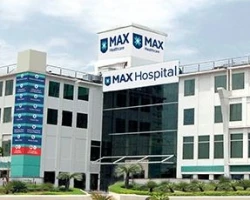
Gurgaon, India
Specializations: Cardiac surgery, Vascular surgery, Thoracic surgery, Neurosurgery, Spine surgery, Orthopedic surgery, Oncology, Dentistry
Max Hospital Gurgaon has treated over 5 lakh patients, applying its expertise across 35 specialised fields including Cardiac Sciences, Minimal Access, and Laparoscopic Surgery, Neurosciences,
read more
Prices for popular procedures:
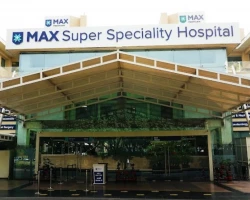
Dehradun, India
Specializations: Cardiac surgery, Vascular surgery, Thoracic surgery, Neurosurgery, Spine surgery, Orthopedic surgery, Oncology, Dentistry
The 200+ bed Max Hospital, Dehradun has always been at the forefront of providing quality healthcare. It has already done so for over 3 lakh
read more
Prices for popular procedures:
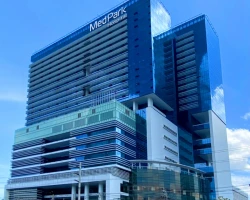
Bangkok, Thailand
Specializations: Cardiac surgery, Vascular surgery, Thoracic surgery, Neurosurgery, Spine surgery, Orthopedic surgery, Oncology, Dentistry
MedPark Hospital was established from the cooperation of diverse healthcare professional fields and Mahaichai Hospital Public Company Limited. The hospital operates under medical professionals and
read more
Prices for popular procedures:
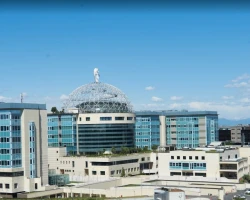
Milan, Italy
Specializations: Cardiac surgery, Vascular surgery, Thoracic surgery, Neurosurgery, Spine surgery, Orthopedic surgery, Oncology, Dentistry
Languages: English
The San Raffaele Hospital is an institute which embodies clinical, research and university activities. Established in 1971 it provides international-level specialized care for the
read more
Clinics grouping by rating
Clinic with the highest rating of 5 — Clinical Hospital Lapino in Moscow, Russia and 5 more, clinic with the most reviews number of 35757 — Aster CMI hospital in Bengaluru, India.
With rating 4.0 and over — 203 clinics .
Countries with the highest number of clinics treating the diseases:
Mitral valve stenosis:
worldwide
579 clinics
India
39 clinics
Brazil
32 clinics
Germany
29 clinics
Turkey
29 clinics
Colombia
26 clinics
Related procedures:
Procedures are likely to be used for Mitral valve stenosis treatment:
Balloon valvuloplasty,
Bio-prosthetic valve replacement,
Double valve replacement,
Mechanical valve replacement,
and
Mitral valve replacement (MVR)
.
